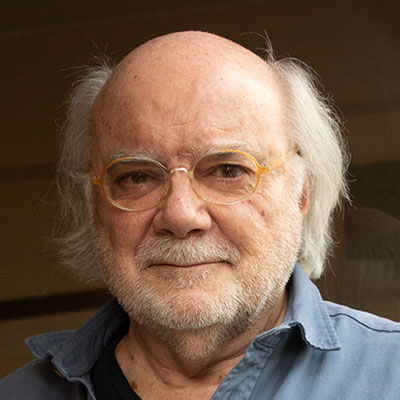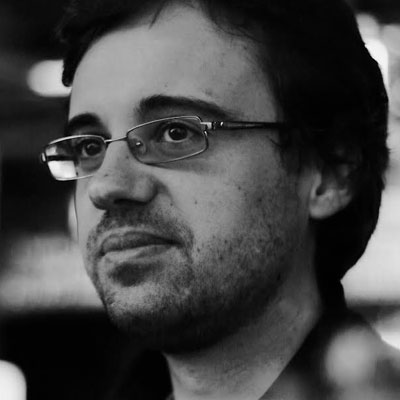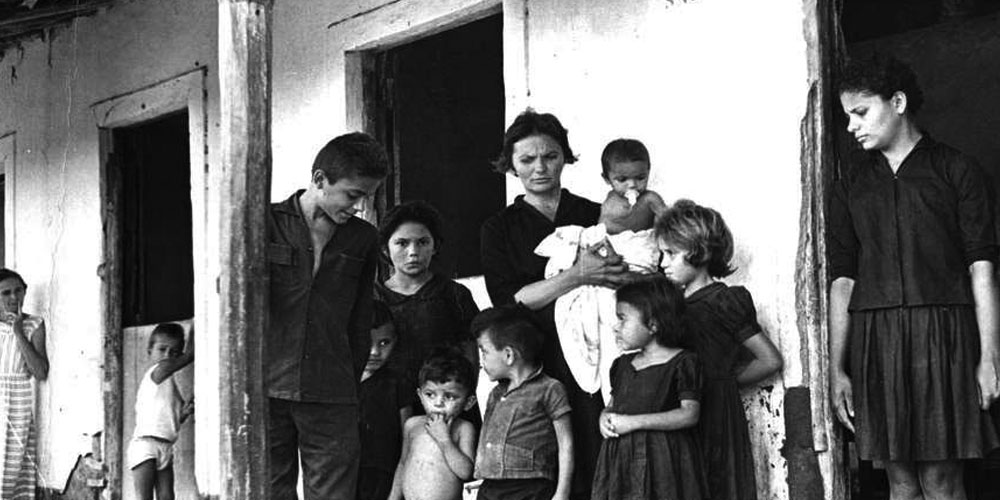07August
X-RayDoc
Coordenation Jorge CamposTalk/debate
with Jorge Campos and Luís Mendonça about the film Man Marked for Death, 20 Years Later, by Eduardo Coutinho (Brazil, 1984, 119 min)
X-RAYDOC proposes to analyze a single film whose importance is indisputable for the History of Documentary film-making in which the relationship with the other, in context, is highlighted as a structuring element. This relationship has consequences at different levels, from the outset in terms of narrative solutions shaped according to both ethical and aesthetic criteria. Hence, since the real – the documentary's raw material – is made up of change, the result of a multiplicity of combination declinations, practically infinite, inevitable in a cinema that challenges its time and who inhabits it. This is the gaze’s domain. Therefore, from a whole theory. There are documentaries that influenced the outcome of wars, led to the acquittal of those condemned to death, shed new light on acquisitions, denounced unsustainable situations, changed the lives of thousands of people. There are documentaries that have changed cinema itself. X-RAYDOC is part of this singularity, seeking to go further.
Entry is free.
| Hour | Activity | Location |
|---|---|---|
| 10h00 | Film screening | Casa da Cultura |
| 12h00 | Coffee-break | |
| 12h15 | Talk/debate | Casa da Cultura |

Jorge Campos
PhD in Communication Sciences from the University of Santiago de Compostela, expert in Documentary Film, professor of Higher Education, journalist, filmmaker and cultural programmer.

Luís Mendonça
Luis holds a PhD in Communication Sciences from the Faculty of Social and Human Sciences of the Nova University of Lisbon (NOVA FCSH) and has a master's degree on the specialty of Cinema and Television. He teaches cinema and photography, is author and programmer.

Man Marked for Death, 20 Years Later
by Eduardo Coutinho | Brazil, 1985, 119'
In 1964, director Eduardo Coutinho begins filming a semi-documentary work on the life of João Pedro Teixeira, a charismatic peasant leader from Paraíba who opposed the large landowners of northeastern Brazil and who had been murdered two years earlier. The film would be a reenactment on the spot and with the real participants of the story. Elizabeth, João Pedro's widow, and their children would live out their own roles. However, in a politically troubled time, the shooting was interrupted by the military coup of 1964. Seventeen years later, in 1981, Coutinho returns to Paraíba to resume the story that was left untold. This is how he meets Elizabeth and some peasants again, starting a film whose theme is no longer limited to the death of João Pedro Teixeira to reveal, above all, the life path of those who survived the difficult years of the military regime.
- Director and screenplay:: Eduardo Coutinho
- Texts: Eduardo Coutinho, with the collaboration of Eduardo Escorel
- Photography: Fernando Duarte ((black and white material, filmed in 1964)) e Edgar Moura (colour material, filmed in 1981)
- Sound: Jorge Saldanha
- Editing: Eduardo Escorel
- Narration: Eduardo Coutinho, Ferreira Gullar, Tito de Lemos
- With: Elizabeth Teixeira and her children Abraão, Carlos, Isaac, Maria das Neves, Eliana, João Virgínio Silva, Galileia workers (Pernambuco), Sapé (Recife), etc.
- Prodution: Produções Cinematográficas MAPA
- Producer: Leon Hirszman (1964 film), Eduardo Coutinho, Zelito Viana, Vladimir de Carvalho (1981 film)
- World Premiere: Festival Internacional de Cinema, Televisão e Vídeo of Rio de Janeiro, 24th November 1984.